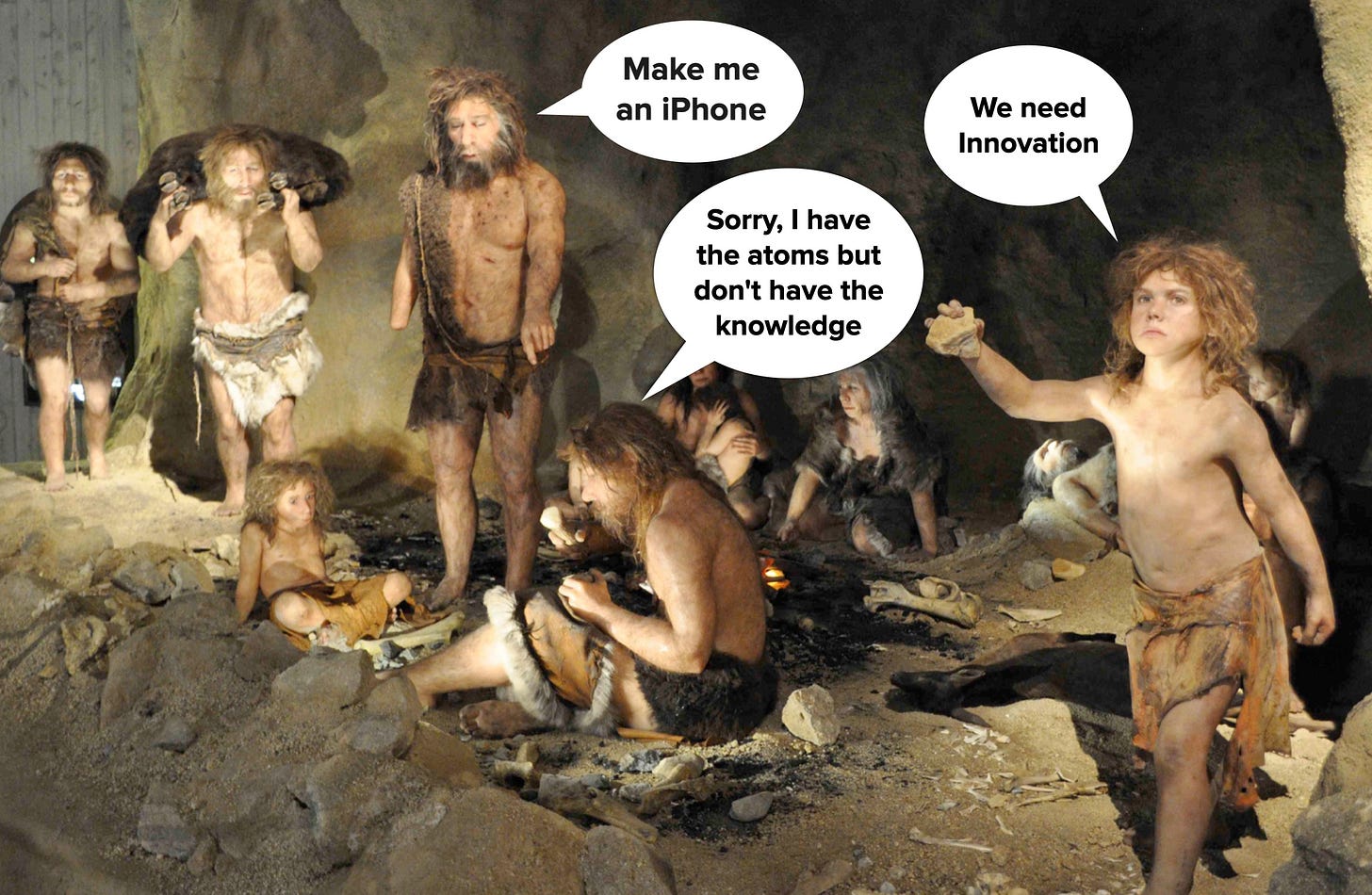Pianonomics
The number of atoms on our planet is finite, but our standard of living is based on knowledge and knowledge is not finite.
Two questions:
How many keys does a piano have?
How many songs does a piano have?
If you answered 88 to the first question you get an A.
In Avengers: Infinity War, Thanos says, “It's a simple calculus. This universe is finite, its resources, finite. If life is left unchecked, life will cease to exist. It needs correcting.” Thanos would say that since a piano only has 88 keys that there must only be 88 songs. In a sense Thanos is correct. There really are a fixed number of atoms in the universe. But life is not just about atoms, life is about knowledge, and knowledge is not subject to the laws of physics. The correct answer to question number 2 has to be infinity. But pianos don’t really have songs, people have songs and use pianos to share their imaginations. Thanos would get an F on the second question.
What is Wealth?
In his book, Knowledge and Decisions, the great economist Thomas Sowell notes that “The cavemen had the same natural resources at their disposal as we have today, and the difference between their standard of living and ours is a difference between the knowledge they could bring to bear on those resources and the knowledge used today.” As George Gilder writes, “The difference between our age and the Stone Age is entirely due to the growth in knowledge.”
Wealth is not gold, or oil, or money. In a very real sense, wealth is knowledge. We can inscribe knowledge on physical things, but knowledge is not physical. Much of what we value is not physical, but spiritual, in the sense that it appeals to our intellect and tastes and ethics. This is why we value services, and things of beauty in music, art, literature, movies, architecture, and so on.
What is Growth?
Growth is learning. We discover and create new knowledge if we are free to get on learning curves. In case after case, we see the per unit cost to produce something fall by 20 to 30 percent every time output is doubled. These curves are all around us. We also discover and create knowledge when we organize things in new ways. Things like atoms, musical notes, words on a page, pictures on a screen, and bits in software. The worth of our new arrangements are tested in markets where people have the opportunity to continuously vote on how much value we have created. You can say that economics is the study of how human beings create value for one another.
Accountants and biologists count the quantity of things. Economists, on the other hand, look at prices, in particular time prices, and these prices suggest that abundance is accelerating as population increases. If Thanos had recognized that human beings are infinitely creative with a fixed number of atoms or keys on a piano, he would have realized that destroying half of all life was destroying half of all the potential to innovate, to create new music and new products and services that benefit all of us. As George Gilder notes, human beings are created in the image of our Creator to be creative, which confirms Julian Simon’s insight that human beings are the “ultimate resource.”
To really understand our world, stop thinking like Thanos and start thinking like Julian Simon, stop counting and start creating.
Gale Pooley is a Senior Fellow at the Discovery Institute and a board member at Human Progress





